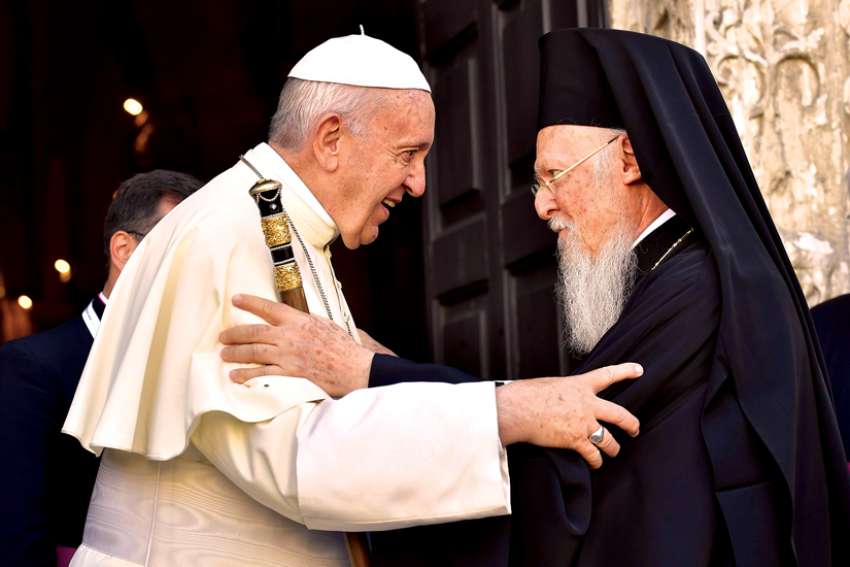“This region, so full of light, has been covered in recent years by dark clouds of war, violence and destruction, instances of occupation and varieties of fundamentalism, forced migration and neglect. All this has taken place amid the complicit silence of many. … There is also the danger that the presence of our brothers and sisters in the faith will disappear, disfiguring the very face of the region. For the Middle East without Christians would not be the Middle East.”
While the address evoked strong emotions and planted a seed for introspection and anticipated changes, more than a year later, things appear to remain the same. The terrorist group ISIS has been defeated, but its ideology is still very much present and tensions and power struggles remain high in the region.
Syrian refugees aren’t returning home as hoped. Tensions in Lebanon between locals and refugees appear on the rise. Job losses and unemployment levels are rapidly increasing. Families can be seen queuing up at food banks for hours.
In Iraq, the social and religious discord between residents has left the economy and country in disarray. Many fear an incident between the Kurds, Sunni and/or Shiite Muslims could lead the country to a second civil war.
Palestinians are challenged by a seemingly endless status quo and deep divisions in their own political leadership, while Israel continues to establish West Bank settlements, which are considered illegal under international law.
It’s easy to understand why Christians remain uncertain about their future in the region. In the last 15 years, 2.5 million of them — from different Churches, rites, ethnic composition and language — have been uprooted from their lands with no prospect of returning. This is a great loss for the region. Many of those who left were the advocates of peace.
As a collective, these groups provided and continue to provide the lion’s share of education, health care and care for the marginalized, which includes refugees and displaced migrants, as well as provide other essential social services to ordinary citizens and vulnerable groups from all walks of life. These peacemakers and bridge builders played and continue to play an active role in interreligious dialogue. In a very real way, many communities are left with a large void in areas of social and political action.
This past June, I participated in a conference at the Vatican at which Pope Francis spoke. Not surprisingly, he reverted to the opening statement made in Bari one year ago.
“I think sometimes of God’s anger that will blaze out against the leaders of countries who speak of peace and sell arms to make wars,” he said. “This hypocrisy is a sin.”
He also reinforced the important role that international Catholic charities, like CNEWA, are delivering day in and day out in the region.
“In these days, together with voices of sorrow and lamentation, you will also hear voices of hope and consolation,” he said. “They are the echoes of that tireless charitable outreach that has been made possible also thanks to each of you and the agencies that you represent. “
Despite the dark clouds of war and destruction looming over the lives of many, there is hope. We cannot be overrun by despair. The work done in recent years, supported by Canadian Catholics and non-Catholics, to help Syrians, Iraqis, Egyptians, Palestinians and so many other Middle Easterners has positively impacted families, giving them dignity, courage and some measure of hope.
The path towards peace is still in its preliminary stages. But an essential step along this path is to stop or even reduce a flow of migrants and refugees that has dramatically increased in the past 10 years.
On Sept. 29 the Catholic Church worldwide will mark the World Day of Migrants and Refugees. It is a day that Pope Francis invites us to continue to spread hope, compassion and peace.
Also, as Canadians head towards the Oct. 21 election, voters should ask candidates to commit to peace and explain how their party will help build peace in the Middle East and in the world so that people there and in Canada can shine as a light piercing through the darkness of war, violence and destruction.
(Hétu is National Director of Catholic Near East Welfare Association Canada.)


